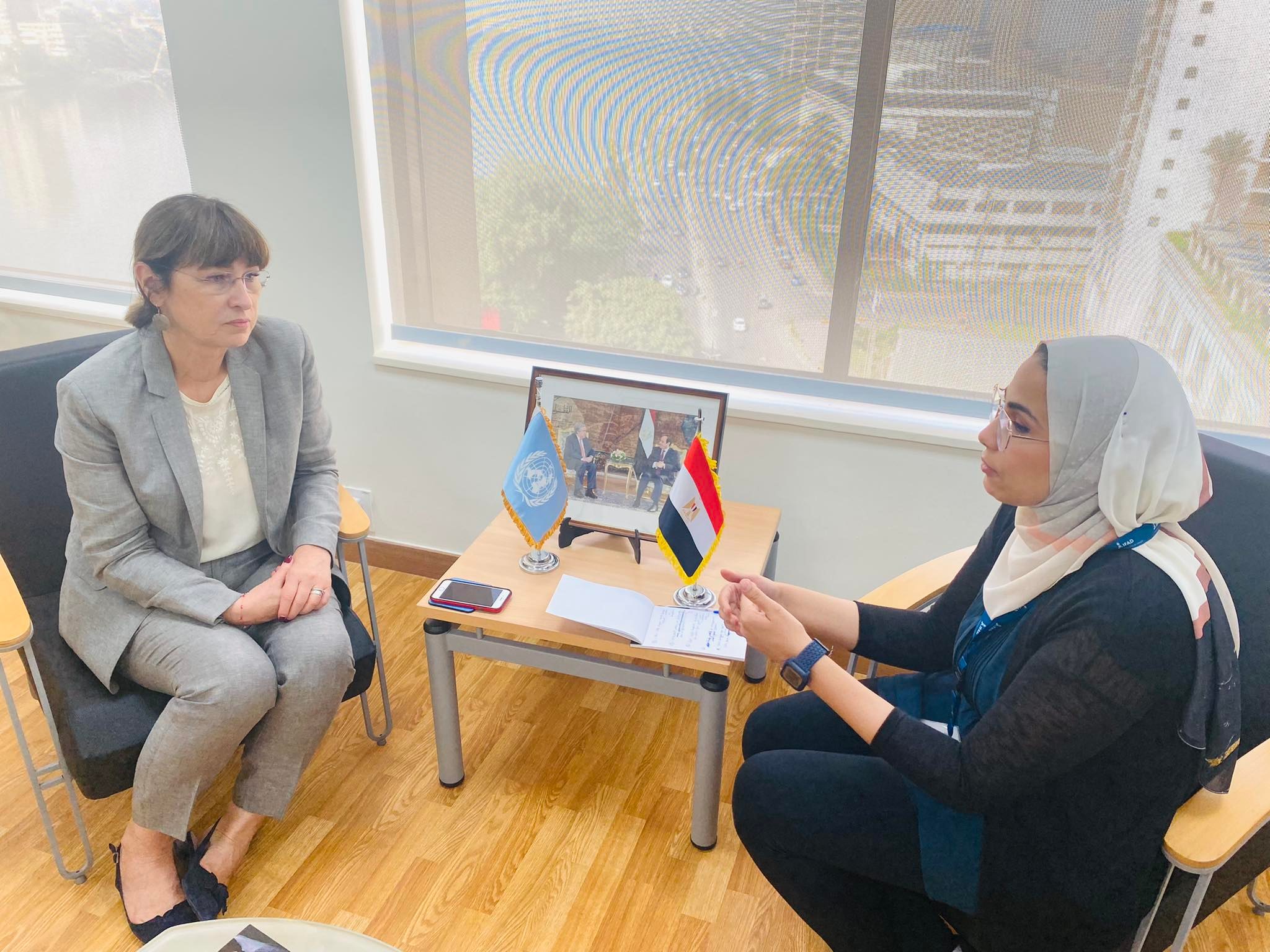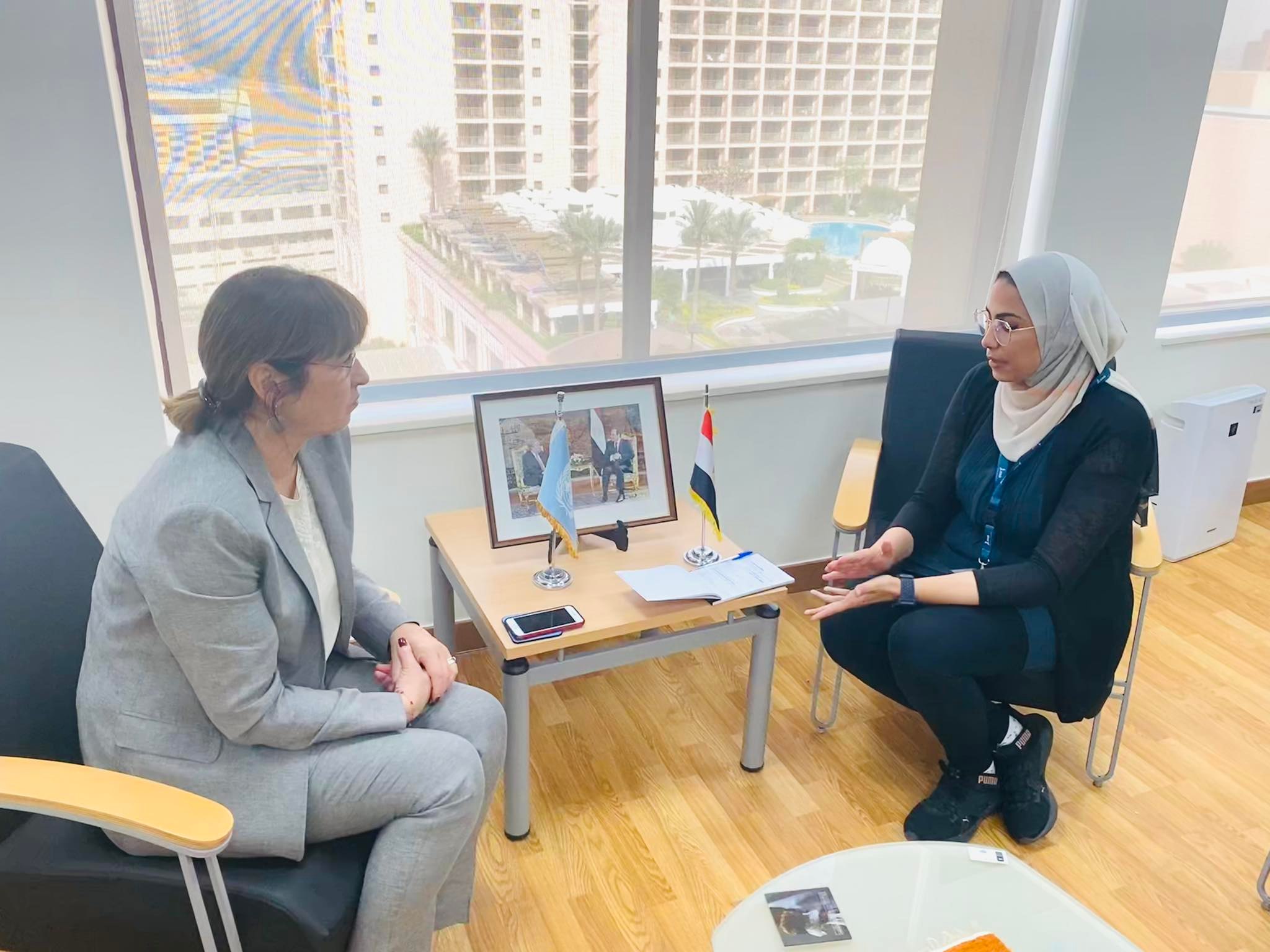CAIRO – 29 October 2021: As rural development is one of the main areas of interventions in the UN in Egypt, et sat with Elena Panova, the UN Resident Coordinator in Egypt who spoke about Egypt’s Haya Karima initiative as a national priority to achieve sustainable development in the country.
Due to the fact that the rural population constitute more than 57 percent of Egypt’s population, Panova during the interview said that the UN efforts are aligned with the Egyptian government’s goals, to improve livelihoods of rural communities, empower women and build people’s resilience to climate conditions.
Below is the interview:
et: How do you see nation-wide initiatives like Haya Karima seeking to improve livelihood in the countryside in Egypt is helping the UN achieve progress in developing rural areas?
Panova: Our goals is basically the goals from the government. UN in Egypt works to partner with the government so that it achieves sustainable goals and 2030 agenda. So in order to stay relevant to this country, we need to absolutely be aligned with the national priorities, and Haya Karima is a national priority and the biggest undertaking of the government, and we are extremely appreciative that the government decided to have this initiative because the Haya Karima speaks to all the 17 SDG goals.
If, and I am sure the country will successfully implement and reach the targets of Haya Karima, the country will actually move towards and achieve to a great extent the sustainable development goals.
So, as a UN system, poverty alleviation speaks to the core of what the UN tries to achieve, and speaks to the main principle which we are trying to abide by, which is leaving no one behind or working with the ones being left behind or those facing the risk of being left behind.
And for us, it is extremely important that the government succeed, and we will be by the side of the government, and do whatever we can through our partnership to help the government achieve this goal.
What is important, now that Haya Karima is full-fledged working, that our programs align with Haya Karima, and we channel them and locate them where Haya Karima works.
And we have already started, and I can tell you that Haya Karima and the work of the UN naturally come together, as they both focus on the most vulnerable.

et: Building people’s resilience to climate conditions constitutes an important component of UN projects, especially an IFAD project in north west of Egypt. How do you do that on ground?
Panova: It is multifaceted goal seeking to build people’s, business’s and farmers’ resilience. It is not only in IFAD, but we have agencies like FAO, UNDP, WFP that work on the ground with the smallholder farmers to bring to their attention technologies in agricultural practices so that they can introduce these new methods of agriculture because climate change is a fact, and we will feel it more and more, and we need to be adapted to it.
et: Could you give us examples of your work in helping Egyptian farmers adapt to climate change?
Panova: There are brilliant examples of very interesting UN projects, so last year, we managed to reach out to 35,600 small-farmers on climate change adaptive measures through a join program, and around 4,183 farmers were provided with technical support for enhanced crops and livestock productivity covering Kafr el-Sheikh, Beni Suef, Beheira and Minya.
Also a total of 1,283 smallholder farmers were trained on various climate adaptive measures, 347 farmers of them were prepared as climate change leaders, while a total of 3,696 beneficiary farmers were trained on good agricultural practices.

et: As Egypt announcing progress made in women empowerment and reducing poverty rate, how do you see this achievement is contributing to your work to achieve sustainable development in the country?
Panova: We really appreciate that alleviating poverty is atop Egypt’s political agenda, and the country is making huge efforts to achieve it through initiatives like Haya Karima, mainly with job creation, enabling environment, empowering women economically, and these are two sides of the same coin. And empowering women to be educated and earn income for the family, will contribute to less poverty.
NCW is doing a great work with UN women and UNFPA on the economic empowerment, and financial inclusion for women with the support of the European Union. It will be a project, which they are now launching. So a lot of effort is being put in that area, and all these efforts by us, the government and development partners will come together so that the difference is felt.
That’s why I am very pleased that Egypt has a very clear commitment in empowering women, and you can see all ministries prioritizing women as a result, and the UN is there to work with the country so that these targets happen.
About Elena Panova:
Elena Panova took up the position of UN Resident Coordinator in Egypt in 11 January 2021. She has more than 22 years of development and management experience, including all aspects of programme management, cross-areas collaboration and resource mobilization, with specific experience in government and private sector financing.
At the United Nations, she most recently served as Resident Coordinator in Turkmenistan, having held several leadership positions at the United Nations Development Programme (UNDP), including Senior Programme Coordinator overseeing the coordination of all regional UNDP and inter-agency programmes at the UNDP Regional Hub in Istanbul.
She also served as UNDP Deputy Country Director in Ukraine, supported the establishment of a private sector Global Compact network, managed a flagship employment creation and microfinancing project at UNDP Bulgaria, and worked as a Private Sector Engagement Specialist at UNDP Headquarters in New York.
Comments
Leave a Comment